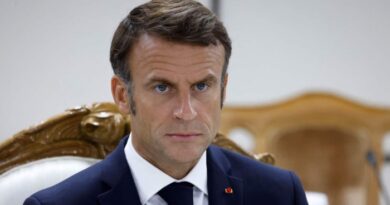Lebanon’s President Selects International Court Head as Prime Minister, Marginalizing Hezbollah
President Joseph Aoun’s nomination of Nawaf Salam signifies a major change in Lebanon’s political scene, potentially reducing Hezbollah’s influence.
Recently elected Lebanese President Joseph Aoun has appointed Nawaf Salam, the current head of the International Court of Justice (ICJ), as the new Prime Minister.
Salam, a Lebanese diplomat and legal expert, received support from 84 out of 128 legislators, showcasing broad backing from different political groups, according to Reuters.
This nomination highlights a notable shift in Lebanon’s power dynamics, especially following Hezbollah’s decreased influence post a recent conflict with Israel and the downfall of Bashar al-Assad, its Syrian supporter.
Hezbollah, considered a terrorist group, is supported by Iran and plays a role in Lebanese politics while maintaining a strong military presence.
Salam, who has held the position of the 27th president of the ICJ since Feb. 6, 2024, now finds himself in a complex international legal and political environment.
Aoun’s selection of Salam received support from Christian and Druze factions, as well as notable Sunni Muslim parliamentarians. However, it faced opposition from Hezbollah and its Shia partner, the Amal Movement, which did not present a nominee. This lack of involvement raises concerns about potential sectarian divisions if these groups remain outside the government.
Lebanon’s unique power-sharing system, aimed at balancing its diverse religious communities, mandates a Maronite Christian as president, a Sunni Muslim as prime minister, and a Shi’ite Muslim as parliamentary speaker.
Hezbollah lawmaker Mohammed Raad expressed disappointment with the decision, claiming that opponents were working towards “fragmentation and exclusion,” as reported by Reuters.
He emphasized that any government not focused on coexistence would lack legitimacy, while assuring that Hezbollah would act prudently and cautiously “in the interest of the nation.”
Salam’s nomination comes at a crucial moment for Lebanon, dealing with a severe economic crisis and the fallout of recent conflicts.
Given Salam’s diplomatic background and current role at the ICJ, he could prove invaluable in navigating Lebanon’s intricate political landscape and international relationships. His election as president of the ICJ in 2024 made him the first Lebanese judge to hold this position, further establishing him as a respected figure in international law.
The United States and Saudi Arabia have expressed support for Aoun, hinting at a potential resurgence of their influence in a country predominantly influenced by Iran and Hezbollah.
Jackson Richman and Reuters contributed to this report.





